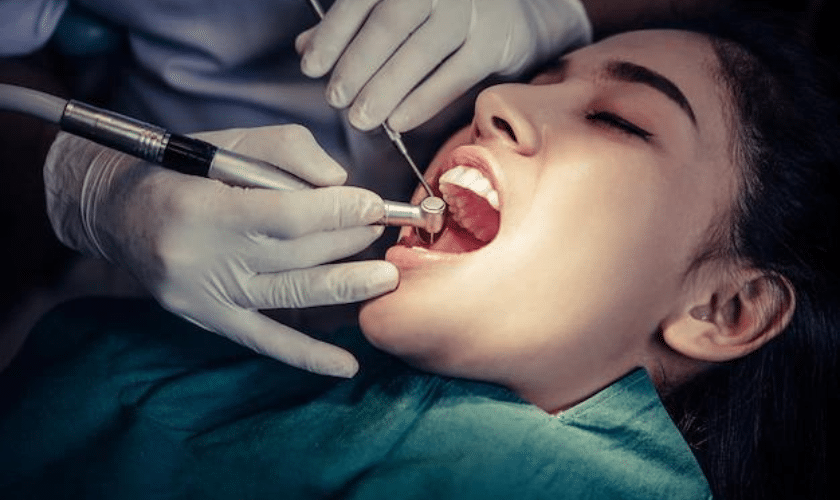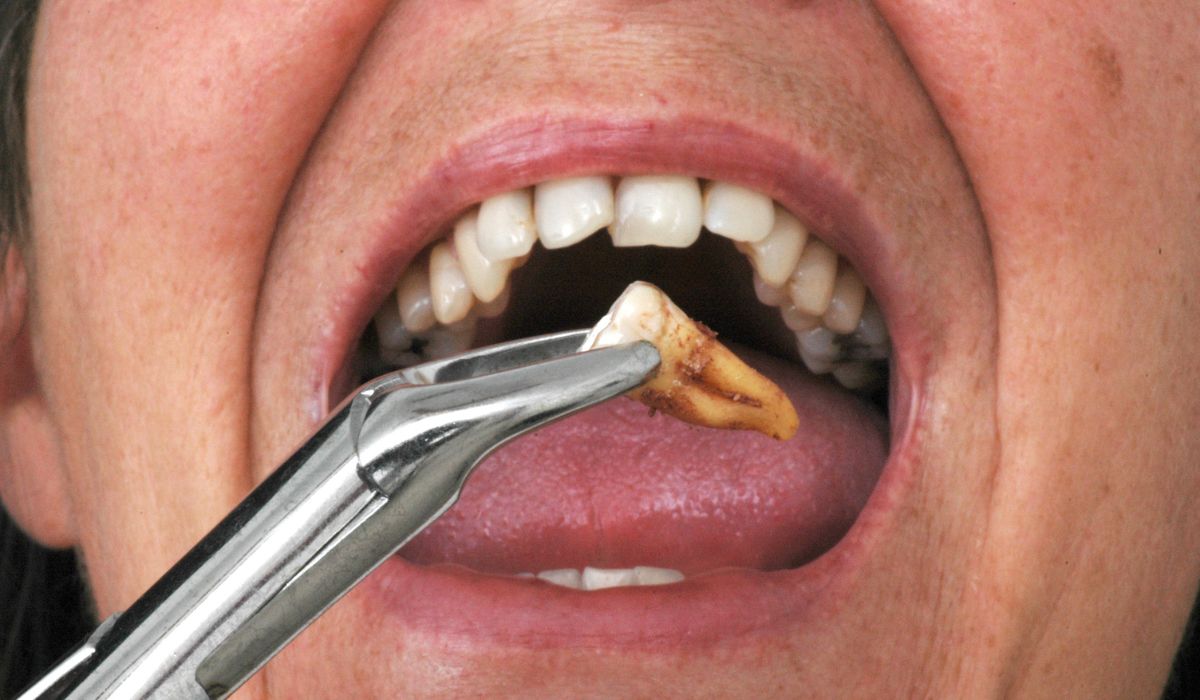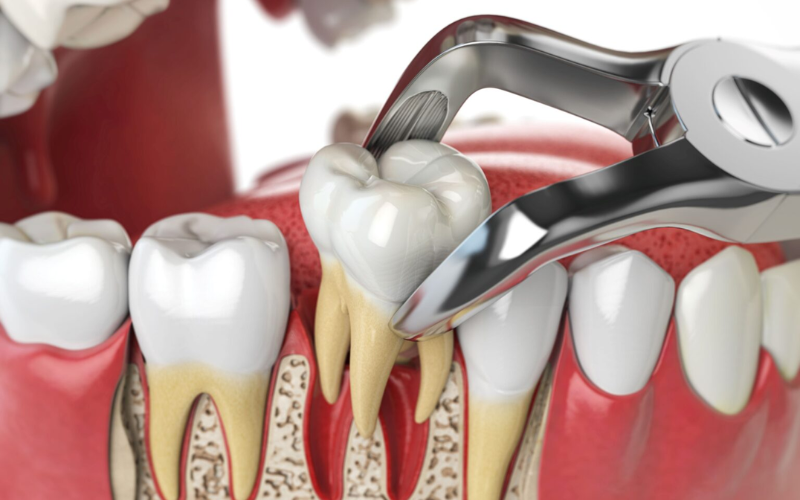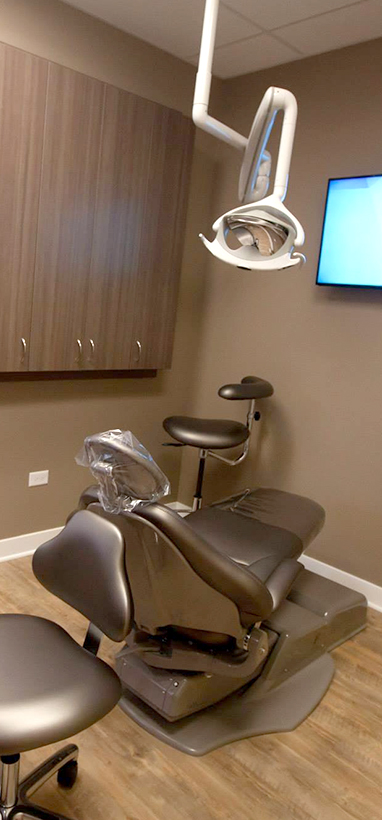1516 Legacy Cir, Naperville, IL 60563
Tooth Extraction Pain Management: What You Need to Know

Are you scheduled for tooth extraction and worried about managing the pain? Don’t fret; we’ve got you covered! This blog post will walk you through everything you need about tooth extraction pain management. From pre-operative preparations to post-operative care, we’ve compiled all the essential information to help make your recovery as comfortable as possible. So sit back, relax, and get ready to say goodbye to dental anxiety!
What is a Tooth Extraction?
- Tooth extraction is a procedure used to remove a tooth from the mouth. It is one of the most common dental procedures, and it is usually performed when there is a problem with the tooth when it is no longer needed. Tooth extraction can be done using either an electric or manual tool.
- The type of tool that will be used depends on the stage of the extraction process. For example, if there is a dental implant in the tooth, an electric tool will be used to remove it. If there is no implant, then a manual tool may be used.
There are different types of tooth extractions, and each has its own set of risks and benefits. Here are just some of them:
1) Peri-Implant Teeth Extraction: This type of extraction is often used when an implant is in the tooth. It involves using a special surgical drill to remove the implant and the tooth below it. This procedure has fewer risks than other extractions, but it does have some. One risk is that infection can occur during surgery. Another risk is that the implant may break during removal and cause further damage to the teeth and jawbone.
2) Novice Tooth Extraction: This type of extraction is often used for patients new to teeth extraction surgery. It involves using a manual rather than a surgical drill, making it less traumatic and less invasive overall. However, this
How is Tooth Extraction Done?
Tooth extraction is a standard procedure to remove a tooth from the mouth. However, tooth extraction can be harrowing for the patient, and there are various ways to manage the pain. Here are some tips for managing the pain during and after tooth extraction:
- The risks and benefits of tooth extraction should always be weighed carefully before making a decision. It includes understanding the risks associated with not having teeth removed (e.g., potential dental problems) and the potential benefits of having teeth removed (e.g., improved oral health).
- Several types of anaesthesia can be used during tooth extraction, each with advantages and disadvantages. Choosing an anaesthesia that will provide adequate pain relief for the patient is essential.
- Patients should avoid drinking anything after surgery until they have had time to talk with their dentist about post-operative instructions. Drinking fluids may increase the risk of swelling or bleeding in the mouth, which could lead to additional complications down the road.
- Patients should take it easy after surgery and refrain from strenuous activity for at least six weeks to allow healing to occur correctly. Making significant changes to one’s diet or lifestyle after tooth extraction may also cause additional discomfort later.
What to Expect During and After a Tooth Extraction
If you are undergoing a this procedure, know that it is an outpatient procedure that usually takes around two hours. The following are some standard aftercare procedures:
-Drink plenty of fluids to prevent dehydration
-Apply ice or cold packs to the area where the tooth was removed for 20 minutes every four hours
-Take ibuprofen or acetaminophen if you experience pain
How Can I Manage Pain Associated with Tooth Extraction?
Tooth extraction can be a painful experience, and there are various ways to manage the tooth pain. Here are some tips:
- First, take stock of your pain levels before the extraction. It will help you determine what level of pain is tolerable. Some people can tolerate mild to moderate pain, while others can handle more severe pain.
- If you experience severe pain, take ibuprofen or acetaminophen as needed before the extraction. These medications may provide relief from moderate to severe pain. However, do not exceed the recommended dosage as these medications may cause side effects, including drowsiness and dizziness.
- Avoid drinking alcohol or caffeine before the extraction, as both substances can increase discomfort.
- Next, position yourself in a comfortable position during the extraction. Try to avoid positions that put pressure on your neck or head.
- Before surgery, your dentist will discuss with you any medications that you are taking and whether they might interact with anesthesia or other treatments during surgery.
FAQs about Tooth Extraction:
1. How long does the tooth extraction procedure take?
The time taken for a tooth extraction procedure varies depending on several factors like the complexity of the case, type and number of teeth to be extracted, and if any sedation is needed.
2. Is it painful to have a tooth extracted?
Tooth extraction can cause some discomfort during and after the procedure. However, with modern techniques such as local anesthesia and conscious sedation, patients can experience minimal pain.
3. What should I do after having a tooth extracted?
After removing a tooth, follow your dentist’s instructions carefully to minimize swelling and prevent infection. In addition, patients are usually advised to avoid smoking or drinking alcohol for at least 24 hours post-surgery and stick to soft foods until they fully recover.
4. Can I eat right after my dental surgery?
It is recommended that patients wait at least an hour before attempting solid foods following dental surgery, as eating too soon may cause bleeding in the affected area.
5. What if I experience complications after my extraction procedure?
In rare cases where complications arise post-extraction, such as excessive bleeding or severe pain that doesn’t subside within two days of recovery, consult your dentist immediately for guidance on further treatment options for managing these issues effectively.










